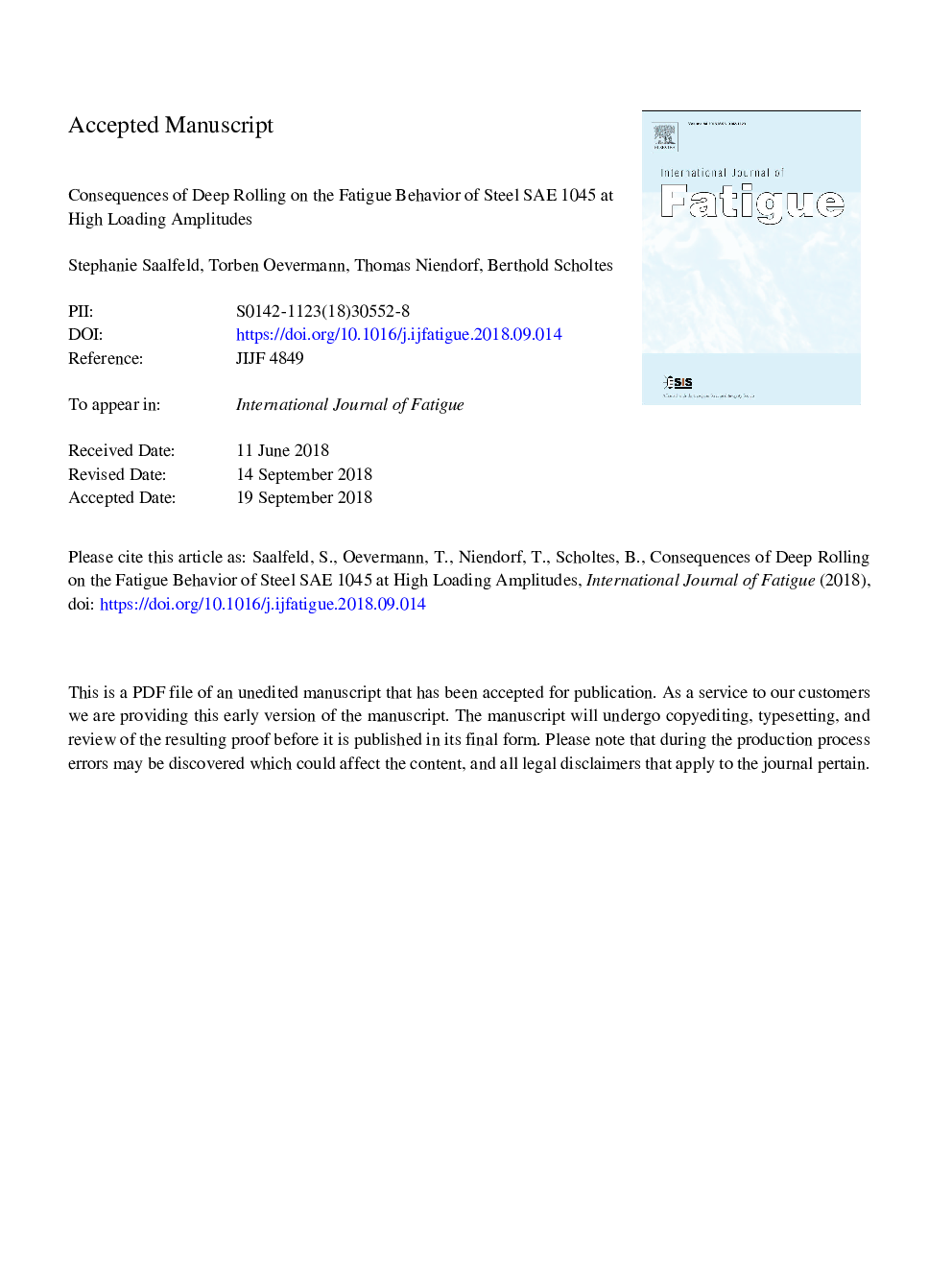| Article ID | Journal | Published Year | Pages | File Type |
|---|---|---|---|---|
| 11031419 | International Journal of Fatigue | 2019 | 27 Pages |
Abstract
Near surface sample volumes play an important role in terms of safety and reliability of technical components especially in the case of fatigue loading. By applying mechanical surface treatment methods such as shot peening, deep rolling or laser shock peening, near surface layers can be tailored resulting in increased fatigue strength especially in the high-cycle fatigue regime. For higher loading amplitudes, increase in fatigue strength, however, is less pronounced and even detrimental consequences of deep rolling treatments have been observed. To identify the reasons for these observations, the cyclic deformation behavior of differently deep rolled, quenched and tempered sample conditions of steel SAE 1045 under high loading amplitudes has been studied and assessed with a focus on the stability of near surface residual stresses. Based on the results, it is shown that the residual stress relaxation behavior in deep rolled material conditions is strongly affected by the cyclic yield strength of each material state and, thus, is related to cyclic plastic deformation. Furthermore, residual stress stability and plastic strain depend on the stress amplitude and are closely related to each other.
Related Topics
Physical Sciences and Engineering
Engineering
Mechanical Engineering
Authors
Stephanie Saalfeld, Torben Oevermann, Thomas Niendorf, Berthold Scholtes,
